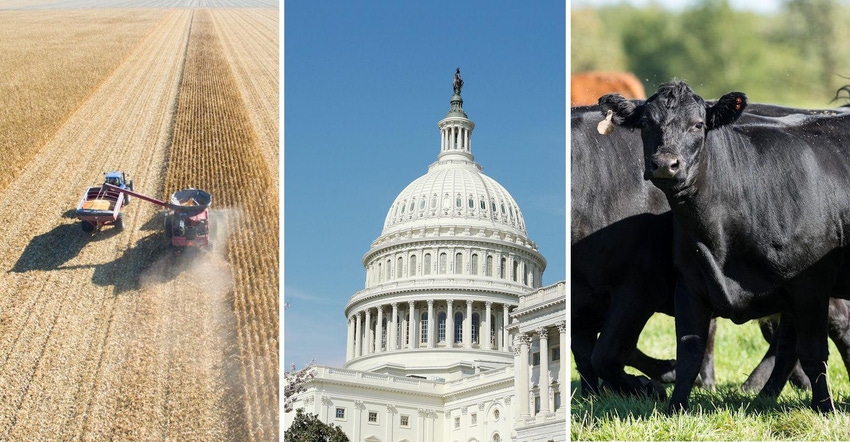7 ag stories you might have missed this week - March 26, 2021
More COVID-19 aid on the way, Prospective Plantings report on tap next week and advocating for ag during National Ag Week.

Need a quick review of ag news? Here are seven stories you may have missed.
1. Agriculture Secretary Tom Vilsack on Wednesday announced how USDA will distribute additional COVID-19 aid. USDA will re-open signup for CFAP2 for at least 60 days beginning April 5. As much as $12 billion more could be deposited into the bank accounts of farmers through this assistance package. – Farm Futures
2. More than 40% of respondents to a hemp industry survey say they weren't profitable in 2020. One-third of hemp processors were "somewhat profitable," according to the survey. – Hemp Industry Daily
3. USDA comes out with its highly anticipated Prospective Plantings report on March 31. In advance of the report, Farm Futures released its survey, projecting 93.6 million acres of corn will be planted and 88.5 million acres of soybeans. The report will shed light on both old crop supplies on hand and potential new crop supplies for 2021/22. – Farm Futures
4. A South Dakota man will serve three months in prison after lying to customers and federal inspectors as part of a scam to sell spiked soybeans. Kenneth Ehrp, a former general manager at a grain warehouse in Sioux Center, Iowa, pleaded guilty to one count of conspiracy to commit a 'prohibited grain practice.' – MSN.com
5. Agriculture Secretary Tom Vilsack told the Washington Post that the Trump administration's response to the coronavirus worsened pre-existing gaps in the U.S. economy. Only 0.1% of coronavirus relief from the Trump administration went to Black farmers, Vilsack said. The majority of payments went to the top 10% of farmers. – The Hill
6. New vaccine trails hold promise in the management of African swine fever. Scientists are exploring using CRISPR technology to produce the vaccine. – National Hog Farmer
7. USDA's Foreign Agricultural Service works on food loss and waste outreach activities in low and low-to-middle income countries in Africa, Latin America and the Caribbean and Asia. In general, food loss and waste in these countries is primarily an issue of post-harvest loss. Food loss and waste is responsible for hundreds of billions of dollars annually in economic losses – USDA.gov
And your bonus.
Amanda Radke shares insights on how people are advocating for agriculture during National Ag Week and beyond. - BEEF
About the Author(s)
You May Also Like


.png?width=300&auto=webp&quality=80&disable=upscale)
